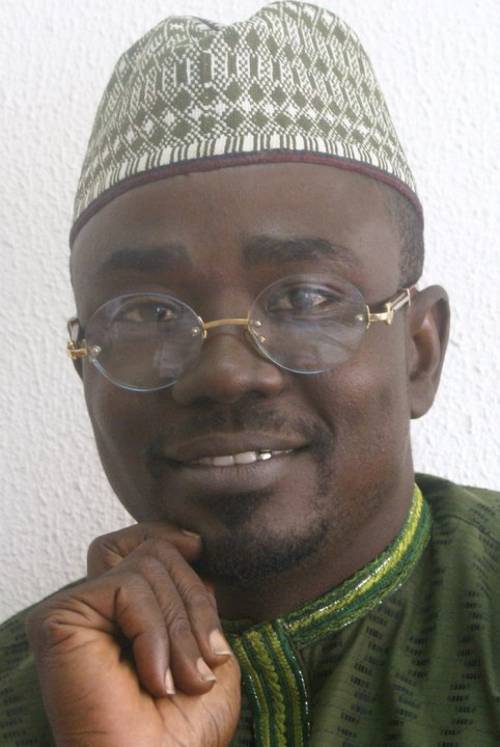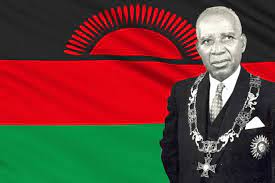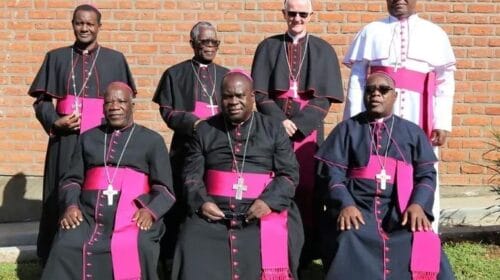Blasphemy: Positions of Justice System and the Holy Quran By Yushau Shuaib
“Take the law into your hands… You need not report to any authority to kill any blasphemer!”
I was shocked to the marrow when an Imam, during a Juma’at service in one of the mosques in Abuja, ordered his followers to engage in extra-judicial killing.
As a Muslim, not only by birth but also by training and practice, I would be terribly disturbed if anyone disparages my religion or the Holy Prophet Muhammad (SAW) whom we the faithful hold in very high esteem. Yet, in that aggrieved state of mind, I would never take the law into my hand but will rather channel my deep consternation appropriately by reporting such sacrilegious act to constituted authorities for suitable judicial measures.
In recent times, I have had to contend with a series of gory footage of extreme brutalities. I watched a video in which blindfolded captives were thrown into a deep ditch and buried alive by their tormentors who were speaking Arabic. I also saw another video in which a female soldier was violently raped in the presence of her husband, also a soldier, before they were both slaughtered by some unknown gunmen who were speaking Igbo. I have equally watched the latest video in which a female student was stoned and later burnt alive by young men speaking Hausa.
The jungle and vigilante justice of taking the law into our own hands, which is barbaric, un-Islamic and a manifestation of violent extremism, can only lead to great social upheaval and chaos. The geneses of some of the crises we are facing in Nigeria today – especially banditry, terrorism and violent secessionist agitations – were extra-judicial killings involving state and non-state actors.
Sometimes in 2014, an Islamic scholar fainted and later had a stroke during a counseling visitation to a detention camp, where terrorists were kept by security forces. The scholar, in a delegation of other clerics sponsored by the Office of the National Security Adviser (ONSA), had encountered a Boko Haram operative, who was notorious as a butcher and known to have slaughtered many people, in captivity.
When the scholar queried the young killer over the motivation for his homicidal sprees, the fellow claimed to have only been following the instructions of his teacher, who also happened to be in custody at that point in time.
When tasked to cite any verse of the Holy Quran or the Hadith – the sayings and actions of Prophet Muhammad (PBUH) – to gauge the level of Islamic understanding behind his thinking, the Boko Haram leader was rather vacuous and claimed to have read all he knew from another Arabic book, and not the holy scripts.
Meanwhile, a judgment in a celebrated case of blasphemy in Nigeria, delivered by a panel of the Supreme Court in October 2007, upheld the death by hanging sentence of Muslim men, Musa Yaro, Abubakar Dan Shalla and others, for the brutal murder of one Alhaji Abdullahi Umaru of Randali village in Kebbi, for allegedly blaspheming against Prophet Mohammed (SAW).
The current Chief Justice of Nigeria (CJN), Ibrahim Tanko Muhammad and the first female CJN Aloma Mariam Mukhtar both Northern Muslims were among the justices of the apex court who delivered a unanimous judgment on that incident, which happened in Kebbi State on in June 1999.
The other justices that decided on the matter included former CJN, Walter Onnoghen, Sylvester Umaru Onu and George Oguntade.
The convicts had earlier been found guilty of murder and sentenced to death by the High Court in Kebbi and an Appeal Court, before the judgment was finally ratified by the Supreme Court.
In his pronouncement, Justice Tanko pointed out that: “Islam is not a primitive religion that allows its adherents to take the law into their own hands and to commit jungle justice.
“Instead, there is a judicial system in Islam, which hears and determines cases, including the trial of criminal offences and anybody accused of committing an offence against the religion or against a fellow citizen should be taken to the court (either a Sharia or a secular/common law court) for adjudication.
“It is only when a person is convicted and sentenced by a court of law that he will be liable to a punishment which will be carried out by an appropriate authority (i.e. the prison).”
He further stated that the accused persons “were merely a bunch of bloodthirsty militants or religious fundamentalists who were all out to satisfy their vindictive zeal against the deceased.”
The life stories of the peace-loving Prophet Muhammad (SAW) were those of a great man, who was mocked, insulted, defamed, cursed, and physically attacked for his faith in Islam – all of which he responded to with patience, forbearance, mercy, and forgiveness of those who had offended him. There are many authentic Hadiths buttressing his peaceful nature, which should teach Muslims the importance of tolerance, kindness and a sense of brotherliness.
The Qur’an, the Hadiths and Shariah law generally do not endorse or justify gross acts of vigilante violence, jungle justice and extra-judicial killings.
In many verses of the Holy Quran, Prophet Muhammad (SAW) and Muslims are enjoined by the Almighty Allah to be patient and to increase their acts of tolerance and worship.
For instance, the following verses in the Quran explain it better:
“Be patient over what they say and avoid them with gracious avoidance.” [Surah al-Muzzamil, 73:10] and “So be patient over what they say and exalt with the praises of your Lord before the rising of the sun and before its setting.” [Surah Qaf, 50:39]
The Quran also warns Muslim against revenge when they are insulted. It states that “We already know that your heart is constrained by what they say, so glorify the praises of your Lord and be among those who prostrate.” [Surah al-Hijr, 15:97-98].
“You will surely be tested in your possessions and in yourselves, and you will surely hear from those who were given the Scripture before you and from those who associate others with Allah much abuse. But if you are patient and fear Allah, that is of the matters requiring resolve.” [Surah Ali Imran, 3:186]
“When you see those who engage in offensive discourse concerning Our verses, then turn away from them until they enter into another conversion.” [Surah al-An’am, 6:68]
“It has already been revealed to you in the Book that when you hear the verses of Allah, they are denied and ridiculed. So do not sit with them until they enter into another conversation. Verily, you would then be like them.” [Surah al-Nisa’, 4:140]
“They said: We will surely be patient with whatever harm you cause us, and let them rely who would rely upon Allah.” [Surah Ibrahim, 14:12]
As a proud Muslim, I know that one of the great Jihads in Islam is to preach love, peace, and tolerance, and spread the authentic teachings of Islam through the Quran and the exemplary conduct of our greatest role model, the noble Prophet Muhammad (SAW).
It is necessary to caution Northerners in the region that currently faces banditry and terrorism to address the plight of ignorant and jobless youth who, if care is not taken, may declare some days in a week for sit-at-home, just as it regularly happens in the South-East.
Although I have received death threats on social media over my Islamic Daawah of peace and tolerance lately, I nevertheless console myself with the verse in the Quran that says: “Show forgiveness, enjoin what is good, and turn away from the ignorant.” [Surah Al-A’raf, 7:199]
This is the real teaching of Islam, not jungle justice.
Yushau A. Shuaib is a graduate of Mass Communication and Islamic Studies
www.YAShuaib.com [email protected]





